- Home
- Vince Flynn
Red War Page 2
Red War Read online
Page 2
One hundred and seventy-one beats per minute read out on Rapp’s monitor.
Coleman was starting to wheeze, a sick whistle from deep in his chest. Something caught in his throat and he started to choke, causing Rapp to hesitate for a moment. Then he started to sprint. If his old friend was going to drop dead, better now than in Afghanistan or Syria when people were counting on him.
Rapp slowed to a walk when he reached the top of the mountain, squinting as he scanned the rolling carpet of green below. He could see the gleaming dot that was his house to the east, surrounded by a few homes erected on similar widely spaced lots. His obscenely rich brother had bought the entire subdivision and sold the individual parcels for a dollar to Rapp’s colleagues, ensuring that his older sibling would always be surrounded by shooters loyal to him.
To the south of Rapp’s gate, a contemporary house of wood and blast-resistant glass was nearly finished. Whether its owner would survive the last hundred yards of this run to take occupancy, though, was an open question.
Fortunately, it was a question that didn’t take too long to answer. Coleman crested the hill, lurching toward Rapp and finally collapsing to the rocky ground. He managed to rise to all fours but didn’t stand, instead keeping his head down and concentrating on not throwing up. After about a minute, he regained enough control of his breathing to get out a single word.
“Time?”
Rapp glanced at his watch. “One hour, sixteen minutes, thirty-three seconds. Pick it up a little bit and you might qualify for the senior Olympics.”
In fact, the pace they’d sustained on the climb would have shaken off a third of active duty SEALs. Not too bad for an old sailor the doctors said would need a cane for the rest of his life.
Coleman managed to lift one hand off the ground and raise his middle finger. “What’s your best?”
Rapp considered telling the truth but quickly discarded the idea. The amount of work Coleman had put into his recovery and the progress he’d made was incredible. No point in discouraging him.
“Hour eleven forty.”
“What would Azarov have done?”
“How the hell would I know?”
“Don’t bullshit me, Mitch. You worked with him.”
Rapp had recruited Azarov to help him with an operation that he didn’t want to involve Coleman’s men in. The former SEAL understood Rapp’s rationale for using the man who had nearly killed him—it had been a straight up illegal action that he didn’t want to blow back on the men who had been so loyal to him over the years. But that didn’t make Coleman any less competitive.
“All he does these days is drink beer by his pool and surf with his girlfriend.”
Coleman pushed himself to his feet. “Okay, Mitch. If you won’t tell me that, at least you can stop lying to me about your real personal best.”
“Fine. Hour four flat.”
“Shit,” Coleman said, lowering himself onto a boulder and staring out over the landscape. “I’ll never be as fast as I was before. Too many years and too much mileage.”
“Fighting’s not just about running up hills, Scott. You know that. I’m more concerned about your head.”
Coleman nodded, not taking his eyes off the horizon. “Over the last year, I’ve had a lot of time to think. Maybe too much.”
“And?”
“I’m not afraid, if that’s what you’re wondering. When your number’s up, it’s up. And I’ve made peace with what Azarov did to me. He was a young guy pumped full of performance-enhancing drugs. An Olympic-level athlete with surprise on his side.”
A barely perceptible smile appeared at the edges of his mouth. “And he damn near took you out, too.”
It was a true statement. Rapp won his battle with the Russian but that win had ended with him getting blown off an oil rig with his hair literally on fire. Too many more wins like that might kill him.
“It’s gonna get dark, Scott. And I want to take it easy on the way down. My knee’s bothering me.”
Coleman’s smile widened at the obvious lie.
And that was another thing that would be impossible to replace if he decided not to come back to active duty. They always knew what the other was thinking and could anticipate each other’s moves. They’d grown up in this business together and had a connection that Rapp doubted he could ever replicate with someone else.
“I’m okay with where I stand now,” Coleman said, looking up at him. “The question is, are you? You can’t be out there worrying about me leaving you hanging.”
Rapp’s cell phone rang and he pulled it out of a pocket in the back of his shirt. Claudia.
“What’s up?” he said, connecting the call.
“How’s Scott? You didn’t hurt him did you?”
Claudia Gould had recently gone from being the woman he was living with to being the woman he was living with who was also the logistics coordinator for Coleman’s company. Her late husband had been one of the top private contractors in the world before Stan Hurley tore his throat out. Not an ideal start to a relationship but it seemed to be working for both him and Coleman. She’d helped Rapp start living something that could pass for a life and she’d held SEAL Demolition and Salvage together while Coleman spent his days with personal trainers and physical therapists.
“He’s sitting right here.”
“Upright and under his own power?”
“Tell her you’re fine,” Rapp said, holding out the phone.
“I almost took him at the top, Claudia! Don’t let him tell you any different.”
Rapp frowned and put the phone back to his ear. “See?”
“Is he ready to come back to ops?”
“I think he’s ready to come back and run the whole thing. Ops and logistics.”
She switched to French as she always did when she was irritated. “You can wish all you want, Mitch, but he’s not firing me. I’m running that side of the business now. And it’s a good thing for us, because it pays a lot better than the CIA.”
There was no winning this fight, he knew. Claudia had taken a lot of pressure off Coleman and he had precisely zero desire to go back to coordinating details. Besides, she was better at it—something Coleman was fully willing to admit. The problem for Rapp was getting used to having the woman he was sleeping with on the comm when things went south. Boundaries between their personal and professional relationship were complicated and still in flux.
“Now’s not the time to talk about this, Claudia. Scott and I are going to start down, but it might take a while. Go ahead and feed Anna if she’s hungry. We can do dinner when I get back.”
“Actually, you aren’t coming down and we’re not having dinner together. Look to the north.”
He turned and squinted into the horizon. It took a few seconds but he finally made out a small dot over the mountains.
“There’s a laptop on board with a full briefing. Be careful, okay?”
She disconnected the call and he put the phone away before pointing to the approaching chopper. “So what’s the story, Scott? Are you back or not?”
CHAPTER 2
NEAR DOMINICAL
COSTA RICA
“NOT sleeping again, Grisha?”
Cara Hansen was lying next to him on the damp bed, naked and glistening in the glow of his phone. Normally, she would have pressed up against him but with the air conditioner off she opted to nudge him with a finger instead.
“Quit playing with that thing. There’s no signal and you’re wasting electricity.”
Azarov used the house’s internal network to shut off the lights in the upstairs master bedroom. He left them on to give the illusion that they were still sleeping there, though they’d abandoned it three days ago when the power had gone out across the region. The temperature was a good ten degrees cooler downstairs, but it wasn’t helping him sleep. The only thing that could do that was solid intelligence on why the grid was down and when it would be repaired.
“Sorry,” he said, darkening the sc
reen. “I didn’t mean to wake you.”
“I was barely dozing. Too hot to do anything else. I mean, who do I have to screw in this country to get a couple hours of A/C?”
Technically speaking, that would be him. He’d never mentioned to her that he had three massive Tesla batteries under the house that he was reluctant to tap for more than a trickle of current. It had been cloudy for days, making his solar roof all but useless and the supply of diesel for his generators was becoming unreliable.
The people in the little surf town he lived above had largely shrugged and moved on with their lives. They’d never come to rely on technology like he did. Despite his years living there, he’d never mastered locals’ cheerful fatalism.
“If you were to go to the gas station in the morning, that might be a good way to convince them to part with a little diesel.”
“Funny,” she said, poking him a little harder this time.
He was already struggling to remember how long they’d been together. Technically, the time could be measured in months, but in truth he’d loved her for years.
Originally from California, she was a surf instructor who’d worked part time for the company that maintained the subdivision where he lived. In the beginning, a relationship between them had been impossible. He’d been working as a problem solver for the president of Russia, a man who had an unparalleled gift for discovering what people cared about and then using it against them. So, while Azarov had passed up no opportunity to hire Cara for work around the house, he’d been forced to feign indifference to her presence.
He reached out and ran a hand through her damp hair. “You didn’t have air conditioning before you moved in with me. You’re getting soft.”
“Too much of the good life,” she said, rolling away in an attempt to escape the heat coming off his body.
Without the glow of his phone, the world was swallowed by darkness. Azarov stared in the direction of the windows, watching the vague outline of the flowers that Cara had planted on the other side of the glass. Beyond that was nothing but kilometer after kilometer of jungle dense enough to hide just about anything.
He had left the employ of the Russian government but it was unlikely that he was forgotten. Krupin had never agreed to release him and he wasn’t a man accustomed to being defied. Would he take notice of Costa Rica’s power failure? Perhaps use it to take revenge on Azarov for abandoning him and for failing to deal with Mitch Rapp? An example for anyone else who might dare challenge him?
Or maybe it was even worse. Maybe Krupin had charged his cyber warriors with attacking Costa Rica, a country completely unprepared for such an aggression. Would he cripple the country’s entire southwest to retaliate against a man who had spent years faithfully serving him?
No. That was just paranoia. While Krupin was a megalomaniac who required complete control over everyone and everything in his orbit, he was also eminently rational. Everything he did was in direct pursuit of his own survival and power. Krupin never lashed out in a way that didn’t objectively benefit him or that could blow back. At his core, Russia’s president was a man of calculation. A coward and a manipulator.
Besides, according to Azarov’s sources, he’d already been replaced with a man named Nikita Pushkin. By all reports, the younger man was quite gifted and in possession of the loyalty and sense of duty that Azarov had lost so long ago. All in all it seemed to be an improvement for everyone involved. This boy would be showered with everything he desired, Krupin would have a protector who would gladly die for him, and Azarov was free to explore the concept of happiness and perhaps even pursue it.
Next to him, Cara’s breathing evened out and deepened, but his mind was moving in too many directions to follow her into sleep. What if it was someone else? Someone who was associated with one of the many people he’d killed and had heard he was no longer under Krupin’s protection?
Unlikely. Powerful men, once dead, tended to garner very little loyalty. Their inner circles were generally more interested in fighting to fill the power vacuum left behind.
And that left America. Not Rapp, though. Azarov had helped him move against the Saudis and the CIA man had made it clear that he considered himself indebted. He could be trusted and Irene Kennedy wouldn’t act without his consent.
Scott Coleman and his team? It was his understanding that Coleman had largely healed and . . .
Azarov closed his eyes for a moment, trying to clear his mind. If he was intent on reviewing every enemy he’d made over the years, it was going to be a very long night.
When he opened his eyes again, he reactivated his phone’s screen and relaunched his security app. The perimeter alarms were still active, as were all emergency systems. His batteries still had more than eighty percent of their capacity. Satellite Internet was still technically online but so overloaded that it was all but useless.
Cara slapped lazily at him, hitting him in the chest. Her face was half buried in a pillow and he had to strain to make out what she was saying.
“If you’re going to play with that thing, do it somewhere else.”
It was unlikely that he was going to fall asleep anytime soon, so he got up and pulled on a pair of shorts. Cara attributed his restlessness to the heat and what she referred to as GRM—general Russian moodiness—but that was because she believed him to be a semi-retired energy consultant. And that’s the way it would stay. He couldn’t bear the thought of her knowing the things he’d done. Or of her being afraid. A woman like her should never have to feel anything but joy and security.
He padded toward the door, but stopped when she spoke again.
“You’re not sad again, are you, Grisha?”
“No.”
“And you’re not tired of your girlfriend?”
He smiled. “Not yet.”
“Do you want me to take a swim with you? Would that make you feel better?”
“No. Just go back to sleep.”
• • •
The overcast skies from that day had cleared and the moon was bright enough for him to navigate the stairs to the second level kitchen. He considered opening the refrigerator but it was a waste of electricity and he didn’t want the interior light to go on. While he was probably paranoid, there was no reason to be careless.
Instead, he got a glass of water from the sink and walked to the bank of windows facing north. Through them, the mountains were just outlines against the stars. His distant neighbors were all in bed and the ones who still had power reserves weren’t wasting them on things like exterior lights.
He saw a flash that his mind—still under the influence of years of training—immediately recognized as a gunshot. It came from near a rocky knoll that he himself had scouted when he’d been deciding where to place his house. The distance was significant at seven hundred and fifty meters, but it was somewhat elevated and had the clearest line of sight to the structure.
The glass was theoretically bulletproof, but anyone good enough to be sent for him and to identify that vantage point would use a round capable of penetrating. Azarov dove to the floor, knowing that he had less than a second before the impact. He hit the concrete hard but then there was nothing. Just the muffled hum of insects.
Could he have been wrong? Might it have been someone lighting a cigarette? Turning on a flashlight?
He didn’t have time to consider either possibility before the deafening sound of automatic fire erupted from the base of his driveway. The glass in front of him spiderwebbed and then finally collapsed, raining down on him as he crawled toward the island in the middle of the kitchen.
CHAPTER 3
NIKITA Pushkin had secured the high ground, giving him a reasonably unobstructed view north to Azarov’s house. The disused dirt road he was parked on had become overgrown, but was still navigable, unlike the dense jungle surrounding it. Distance was just over a kilometer, making direct involvement in the operation difficult. But that wasn’t his role today.
Through his binoculars, Pushkin saw
the master bedroom light finally go out. Two a.m. Early to bed was apparently yet another of the military habits Azarov had abandoned.
There was a special operations team climbing the steep slope to the front of the house, but their activation was a last resort. The hope had been that the sniper positioned half a kilometer to the west would be able to end this before it even began. Unfortunately, Azarov hadn’t left the confines of his home since Maxim Krupin’s bold attack on Costa Rica’s power grid. Caution, it appeared, was not a habit Azarov had left behind.
During the day, the reflection off the windows made them opaque and at night he had an uncanny ability to stay away from them while running only emergency lighting angled to create glare.
It was insanity to expose his team for so long in this Central American backwater, even with the confusion caused by the power outage. He could have simply driven up to the property and killed the man but Krupin had forbidden a face-to-face confrontation. The president had made it clear that those kinds of actions were no longer his responsibility. That he wasn’t the soldier he’d once been. Now, he was a general.
But was it really true? Or did Krupin believe that he was the weaker man? Pushkin couldn’t escape the feeling that his mentor’s confidence in him was less unshakable than it had been in Azarov.
It was entirely unfair. Had he not carried out to the letter every order he’d been given? Had he not demonstrated unwavering loyalty? Had he not killed Krupin’s enemies and defended his supporters without question or hesitation? Had word of his existence and exploits not struck fear in the hearts of Russia’s oligarchs, politicians, and military commanders?
He spat on the ground in disgust.
The vaunted Grisha Azarov. A man who existed in the twilight between legend and reality. An avenging angel who could walk through walls and kill with a mere wave of his hand.
But what was he now? Nothing. Nobody. Another retired foreigner getting fat while wandering the local beaches.

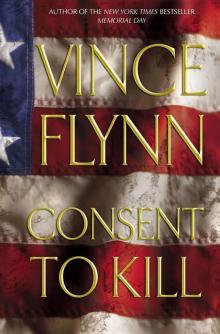 Consent to Kill
Consent to Kill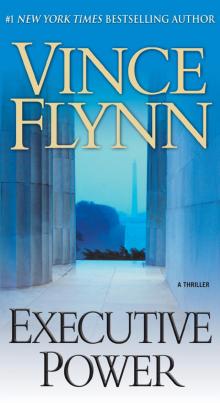 Executive Power
Executive Power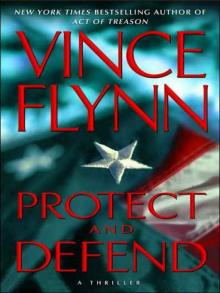 Protect and Defend
Protect and Defend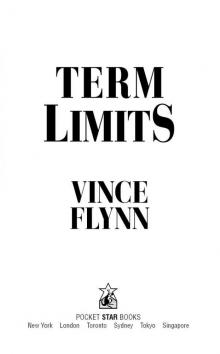 Term Limits
Term Limits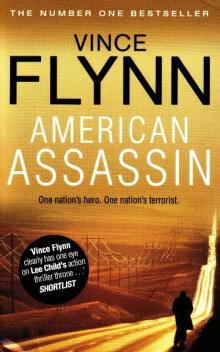 American Assassin
American Assassin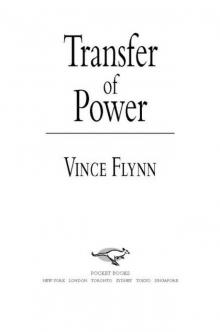 Transfer of Power
Transfer of Power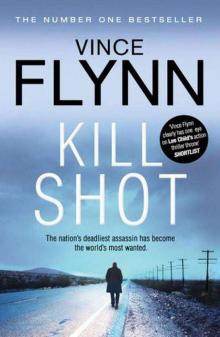 Kill Shot
Kill Shot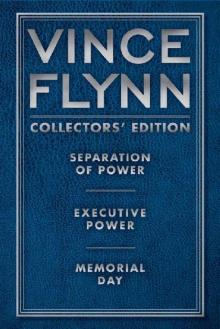 Vince Flynn Collectors' Edition 2
Vince Flynn Collectors' Edition 2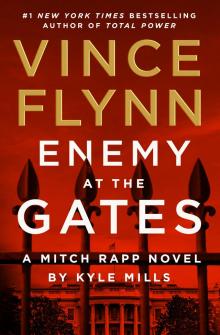 Enemy at the Gates
Enemy at the Gates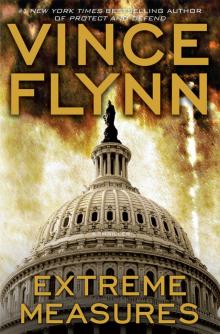 Extreme Measures
Extreme Measures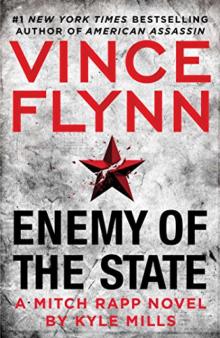 Enemy of the State
Enemy of the State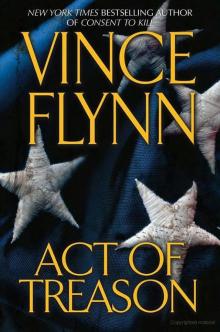 Act of Treason
Act of Treason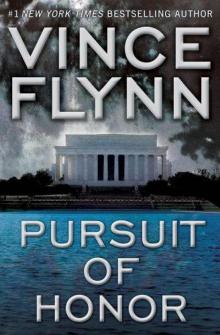 Pursuit of Honor
Pursuit of Honor The Survivor
The Survivor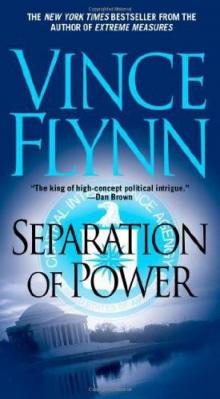 Separation of Power
Separation of Power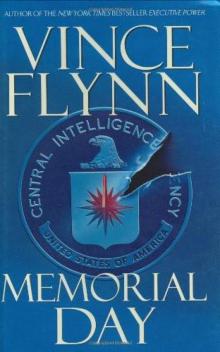 Memorial Day
Memorial Day The Last Man
The Last Man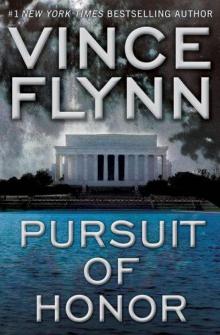 Pursuit of Honor_A Thriller
Pursuit of Honor_A Thriller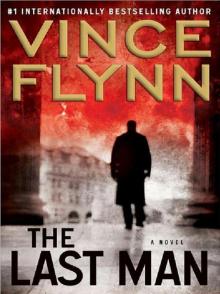 Mitch Rapp 13 - The Last Man
Mitch Rapp 13 - The Last Man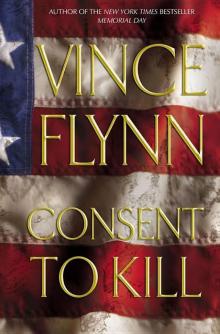 Consent to Kill:
Consent to Kill: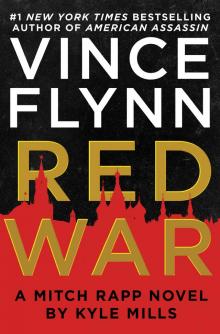 Red War
Red War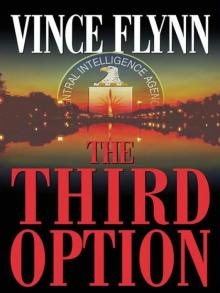 Mitch Rapp 02 - The Third Option
Mitch Rapp 02 - The Third Option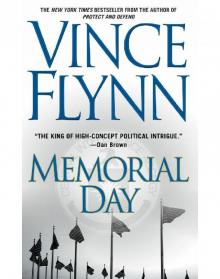 Mitch Rapp 05 - Memorial Day
Mitch Rapp 05 - Memorial Day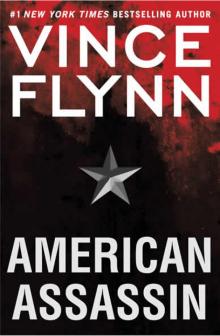 Mitch Rapp 11 - American Assassin
Mitch Rapp 11 - American Assassin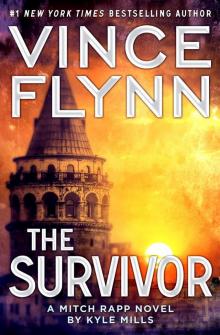 Mitch Rapp 14 - The Survivor
Mitch Rapp 14 - The Survivor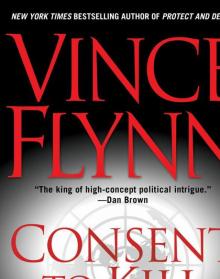 Mitch Rapp 06 - Consent to Kill
Mitch Rapp 06 - Consent to Kill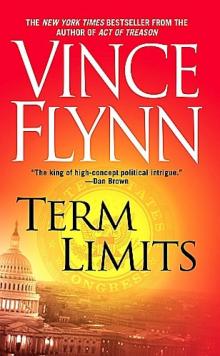 Term Limits mr-1
Term Limits mr-1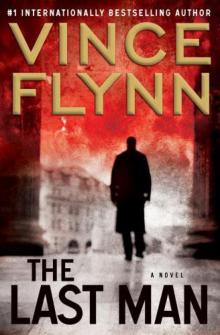 The Last Man mr-13
The Last Man mr-13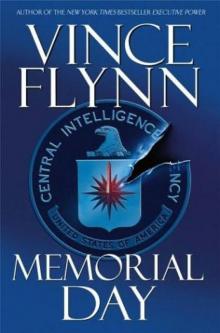 Memorial Day mr-5
Memorial Day mr-5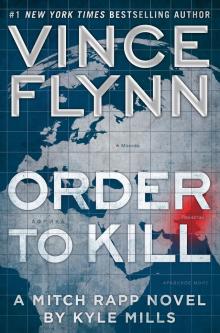 Order to Kill
Order to Kill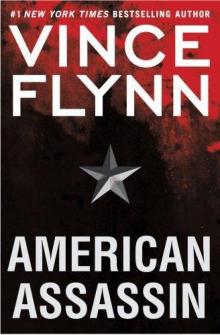 American Assassin: A Thriller
American Assassin: A Thriller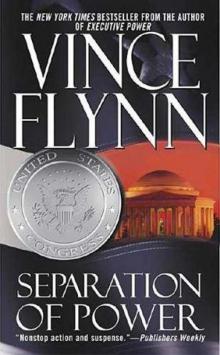 Separation of Power mr-3
Separation of Power mr-3